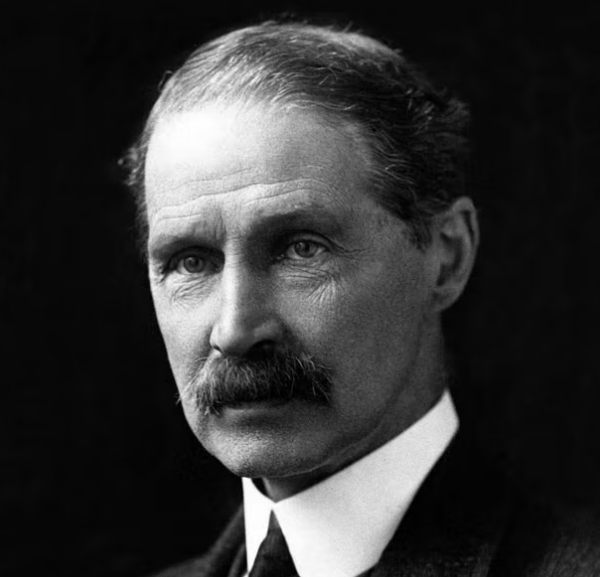Mea Culpa: Liz Truss adds to the list of forgotten prime ministers
Questions of language and style in last week’s Independent, reviewed by John Rentoul


We mentioned Bonar Law a couple of times in the past week, because he was the third-shortest-serving prime minister until Liz Truss pushed him into fourth place. He was in office for 211 days in 1922, before retiring because of illness. He is one of several contenders for the title of the forgotten prime minister, which is more often applied to Henry Campbell-Bannerman, the Liberal prime minister who served for a little more than two years, from 1905-08.
Poor Law is so forgotten that few people know his name. We called him Andrew Bonar Law: that was his full name, but it is often assumed that Andrew was his given name and Bonar Law his surname, unhyphenated on the model of Sir Iain Duncan Smith (who used to be Mr Duncan Smith before he was knighted).
But Bonar, pronounced Bonner, was the prime minister’s given name, and Law his surname. It doesn’t help that Bonar is now extinct as a first name, although I don’t think it was ever common, so it is understandable that people assume it must be a surname.
Law was one of 10 prime ministers who didn’t use their first name, the others being James Ramsay MacDonald, Arthur Neville Chamberlain, Robert Anthony Eden, Maurice Harold Macmillan, James Harold Wilson, Leonard James Callaghan, James Gordon Brown, Alexander Boris de Pfeffel Johnson and Mary Elizabeth Truss.
Auto-incorrect: We set the reader a little puzzle with a headline that said: “Two die after Porches crashes into tree.” John Harrison surmised that the report about an accident involving a (single) Porsche had been autocorrected, or, rather, auto-incorrected. “Maybe at some point Mea Culpa could opine on the power and pitfalls of spell checkers for hard pressed journalists,” he said. I don’t know if that is what happened, but I could certainly opine that they shouldn’t be set to make changes automatically – better for them to underline doubtful words and let the writer decide.
Trick of the light: In a sports report we said: “The almost mythical figure of Usain Bolt may yet prove illusive, but there is suddenly a stunning conviction in Kerley’s eyes as he vows to break the Jamaican’s world record of 9.58 seconds.” Thanks to Roger Thetford, who pointed out that this almost made sense, in that the hope of beating Bolt’s record may turn out to be illusory. But Bolt himself, even if “almost mythical”, is a real person rather than an illusion. We meant “elusive”, meaning that Bolt may escape Kerley’s attempt to catch up with him.
Super shortage: In an analysis of the economic situation we said that the availability of “superconductors” was constricted by “post-pandemic supply-chain disruption”. We meant semiconductors, or computer chips, which are tiny electronic circuits mounted on semiconducting material, usually silicon. A superconductor is a material which behaves unusually at ultra-low temperatures. As for supply chains, I think the phrase is more or less meaningless. “Post-pandemic disruption” would have told us all we need.
Off target: One of our writers was so overtaken by political events in recent days that they kept changing what they intended to write about. First, it was going to be the crisis in Russia, “then I honed in on fracking and the bizarre spectacle of Conservative MPs being whipped to vote against their own 2019 election manifesto”. That should be “homed in on”, like a missile closing on its target (“home”); “hone” means to sharpen on a stone, or metaphorically to improve or polish.



Join our commenting forum
Join thought-provoking conversations, follow other Independent readers and see their replies
Comments